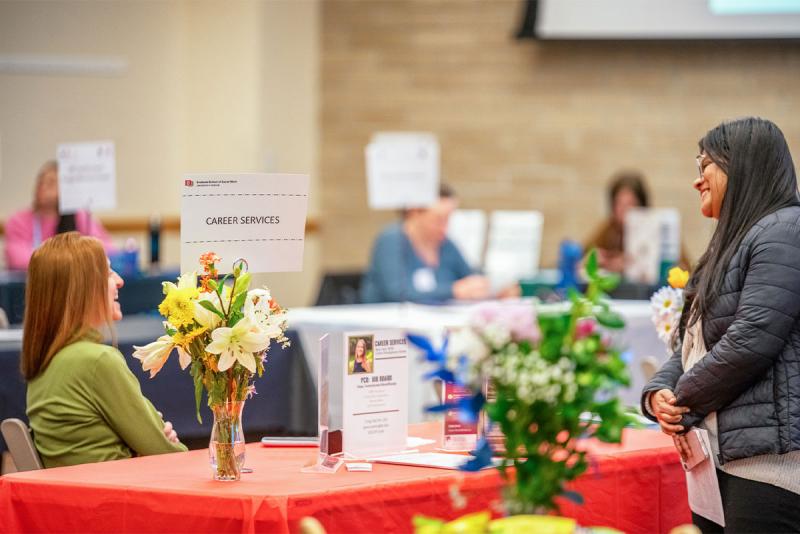How to Become a Social Worker
You want to help others and make a lasting positive impact on your community and the world as a social worker. But how do you become a social worker — or a licensed social worker, specifically?

You want to help others and make a lasting positive impact on your community and the world as a social worker. But how do you become a social worker — or a licensed social worker, specifically?

If you earn a bachelor’s degree in social work, you’ll be able to speed up your graduate education as an advanced-standing student. You don’t have to major in social work as an undergraduate, though. Social work is so flexible, you can eventually turn any accredited bachelor’s degree into a social work career.
Once you have your undergraduate degree, your next stop is to earn a Master of Social Work (MSW) degree at an accredited social work graduate school, such as the University of Denver Graduate School of Social Work (GSSW). You’ll have an opportunity to select an MSW specialization that fits your passion and career goals. For example, clinical social workers focus on the assessment, diagnosis, treatment and promotion of mental well-being, while community practice social workers focus on assessment of population or neighborhood needs, leadership, advocacy and program development.
Field education internships are an important part of social work graduate education and are required for all MSW students. Your field internships will give you an opportunity to practice and grow your social work skills in the real world, with close mentoring and supervision from experienced social workers.
If you want to work as a licensed social worker, you will need to familiarize yourself with the requirements in the state where you plan to work. No matter what state you’re in, you’ll need to take and pass the Association of Social Work Boards (ASWB) master’s exam after graduation.
In Colorado, there are three licensure options:
For licensure in Colorado, you’ll need to complete required clinical experience hours and supervision, take a state exam and apply for licensure.
Here are answers to some common questions about how to become a social worker.
Depending on where you want to work, you will at least need a Bachelor of Social Work (BSW) to become a social worker. Many positions require a Master of Social Work (MSW) degree, and a license is also required for clinical therapeutic practice.
Not technically. Some jobs are available in social work contexts that can be good entry-level experiences to explore populations or settings. However, becoming a social worker who can be licensed and/or hired for social-work-specific jobs requires at least a Bachelor of Social Work (BSW) degree. If you want to become a counselor or mental health professional, you will need a Master of Social Work degree.
Most undergraduate social work programs take four years if you’re attending full time. MSW programs take one year if you’re a full-time advanced-standing student with a BSW degree, and two years otherwise. Some programs offer accelerated or part-time options as well, so the time to complete your degree may vary. Getting an LCSW license requires at least two years of clinical experience after you graduate.
Getting your degree(s) is the first step. Do you know what type of social work you want to do? Social work ranges from the micro (for instance, working as a case manager) to the macro (creating public policy, for example). Research a range of potential careers in social work. Even if you don’t yet know what the right path is for you, social work degrees are extremely versatile and will give you the tools to succeed in a wide variety of careers.
Many social workers ARE therapists! Therapists come from a number of fields, including social work. Therapy is a social work specialty that is focused on treating psychological distress and mental health disorders. But, social workers are also trained to work in a wide variety of other settings, including hospitals, schools, nonprofits, child welfare organizations, community organizing, public policy and many more. One of the main differences between a Licensed Professional Counselor (LPC) and a Licensed Social Worker (LSW) is that no matter what setting they’re in, social workers center social justice, the person in the context of their environment, and the systems in which they work and live. Social workers are well-rounded practitioners who can address injustices and inequities that affect the well-being of individuals, organizations and communities.

Ranked 11th in the nation, the University of Denver Graduate School of Social Work offers MSW programs on three campuses — Denver Campus, Four Corners (Durango, Colorado) and Western Colorado (Glenwood Springs, Colorado) — and online through the MSW@Denver program.